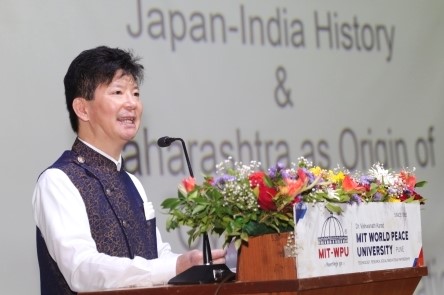Japan’s Pivotal Contribution to Mumbai Metro Line-3: A New Era in Transportation
Japan Funds 57% of Mumbai's First Underground Metro Line, Transforming Urban Mobility. PM Modi will visit Mumbai on Oct 5 to dedicate Mumbai Metro Line-3 to the people.
MUMBAI: The Mumbai Metro Line-3 project, spanning 33.5 kilometers, is now a reality, with significant support from Japan, which funded approximately 57% of the project’s total cost. Prime Minister Narendra Modi will visit Mumbai on October 5 to launch infrastructure projects, including the Metro 3 line, and dedicate it to the people of Maharashtra.
Recently, a delegation from Japan’s House of Councillors visited the Bandra-Kurla Complex (BKC) station of Mumbai Metro’s Line-3 and took a ride to Marol Naka station, symbolizing the strengthening ties between India and Japan through their partnership in this transformational infrastructure project.
The Japan International Cooperation Agency (JICA) has played a major role in financing Mumbai Metro’s Line-3. The total estimated project cost stands at 680,692 million JPY, with Japan providing 354,132 million JPY through an official development assistance (ODA) loan.
The project’s objective is to address the increasing traffic demand in Mumbai by expanding its mass rapid transit system, thereby promoting regional economic development and improving the urban environment by reducing traffic congestion and vehicle pollution.
Mumbai Metro Line-3 is the first underground metro line in Mumbai, connecting the Cuffe Parade business district in the south to SEEPZ in the north-central region, with key stops at BKC and Chhatrapati Shivaji Maharaj International Airport. The line features 26 underground stations and one at-grade station, making it a crucial development in the city’s infrastructure.
With Line-3 operational, the journey from the Domestic Airport station to Cuffe Parade will take about 45 minutes, a significant improvement compared to the over two-hour journey by car during peak traffic times.

While congratulating Indian people, especially the Mumbaikers a day before the partial inauguration of the project by PM Modi, on Saturday, Kaneko Toshihiro, Deputy Consul General of Japan in Mumbai, said, “The Government and people of Japan congratulate the citizens of India, in particular Mumbaikars, the Maharashtra Government, and the Government of India on the partial inauguration of Mumbai Metro Line-3.”
He emphasized the importance of this project, noting, “The Mumbai Metro Line-3 is one of Japan’s Official Development Assistance (ODA) projects. It is heartening to see that the growing and deepeningKaneko bond between India and Japan is reflecting through the reality of these projects.”
The Japanese contribution goes beyond financial support—it extends to incorporating advanced features for passenger safety and convenience. Line-3 includes women-only cars and priority seating for passengers requiring assistance, along with surveillance cameras in station buildings and train compartments to ensure passenger safety.
Special design considerations have also been made for elderly and disabled individuals, ensuring that Mumbai’s public transportation system is accessible to all, providing a safe and reliable commuting experience.
also highlighted the transformational impact of this collaboration. “Another joint iconic project between Japan and India after Atal Setu, it will transform Mumbaikars’ daily commute by reducing their travel time, mitigating traffic, and improving air quality,” he said.
“We are proud that the Government of Japan is part of transport infrastructure development in Mumbai and look forward to the early operation of the full Metro Line-3.”
The recent visit of the Japanese delegation highlights the success of this collaboration, which is expected to transform urban mobility in Mumbai. The metro line is designed to enhance the efficiency and comfort of public transport in one of India’s most populous cities.
The ongoing partnership between Mumbai Metro Rail Corporation Limited (MMRCL) and Japanese agencies, along with Japan’s substantial financial and technical contributions, has brought this ambitious project closer to completion. All lines of the Mumbai Metro are expected to be fully operational by 2025, with Line-3 playing a vital role in reshaping the way people travel across the city.
Kaneko concluded by expressing his hope for the future of the relationship between the two nations: “We hope that the bond between the two countries and their people continues to grow and reflects in these solid, long-lasting transformational measures that aim to improve the lives of the masses.”
The delegation’s visit served as a testament to the strong relationship between India and Japan and underscored Japan’s commitment to supporting infrastructure projects that foster regional economic growth and environmental sustainability.
As Mumbai Metro Line-3 continues to expand its reach, it stands as a symbol of international cooperation, aiming to reduce traffic congestion, improve air quality, and create a seamless travel experience for millions of commuters in Mumbai.


